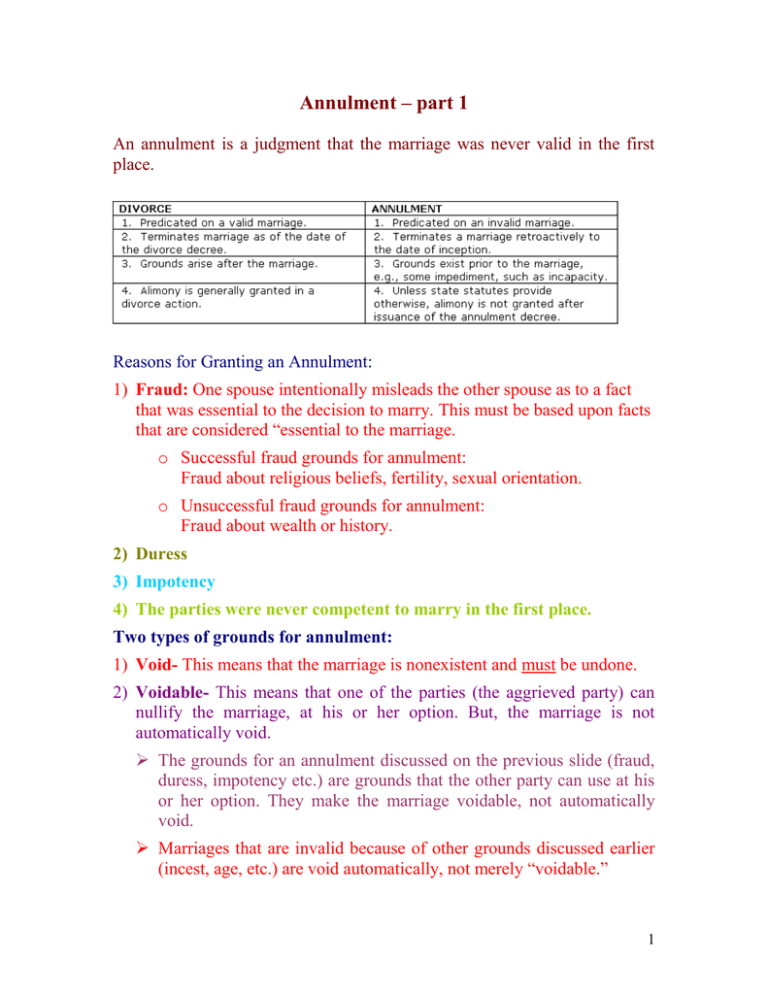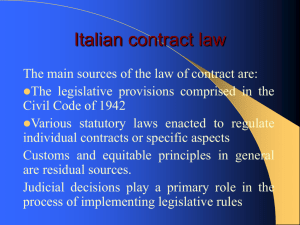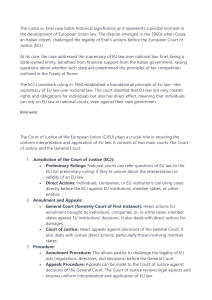Annulment – part 1
advertisement

Annulment – part 1 An annulment is a judgment that the marriage was never valid in the first place. Reasons for Granting an Annulment: 1) Fraud: One spouse intentionally misleads the other spouse as to a fact that was essential to the decision to marry. This must be based upon facts that are considered “essential to the marriage. o Successful fraud grounds for annulment: Fraud about religious beliefs, fertility, sexual orientation. o Unsuccessful fraud grounds for annulment: Fraud about wealth or history. 2) Duress 3) Impotency 4) The parties were never competent to marry in the first place. Two types of grounds for annulment: 1) Void- This means that the marriage is nonexistent and must be undone. 2) Voidable- This means that one of the parties (the aggrieved party) can nullify the marriage, at his or her option. But, the marriage is not automatically void. The grounds for an annulment discussed on the previous slide (fraud, duress, impotency etc.) are grounds that the other party can use at his or her option. They make the marriage voidable, not automatically void. Marriages that are invalid because of other grounds discussed earlier (incest, age, etc.) are void automatically, not merely “voidable.” 1 Annulment – part 2 Defenses against Annulment: 1) Ratification (if the spouse who learns of the reason that the marriage is voidable does nothing about it and continues to live as a married couple). 2) Statute of Limitations 3) Bad Faith of the part of the spouse seeking the annulment (usually, when the spouse should have known of the defect, but didn’t do anything for monetary reasons, etc. 2 Separation Agreements Separation can sometimes be a substitute for divorce, which courts encourage to avoid the expense of divorce litigation. In addition, divorce can sometimes to a prerequisite for a divorce based on certain grounds. Separation Agreements can take the form of: mutual promises regarding certain financial matters. release of claims to specific property. settlement of alimony or spousal support. Custody or child support can be allocated by these agreements, but they will not be binding if the court feels something else is in the best interest of the child. The same rules apply as with other contracts, including the rules of consideration, duress, fraud, etc. 3






